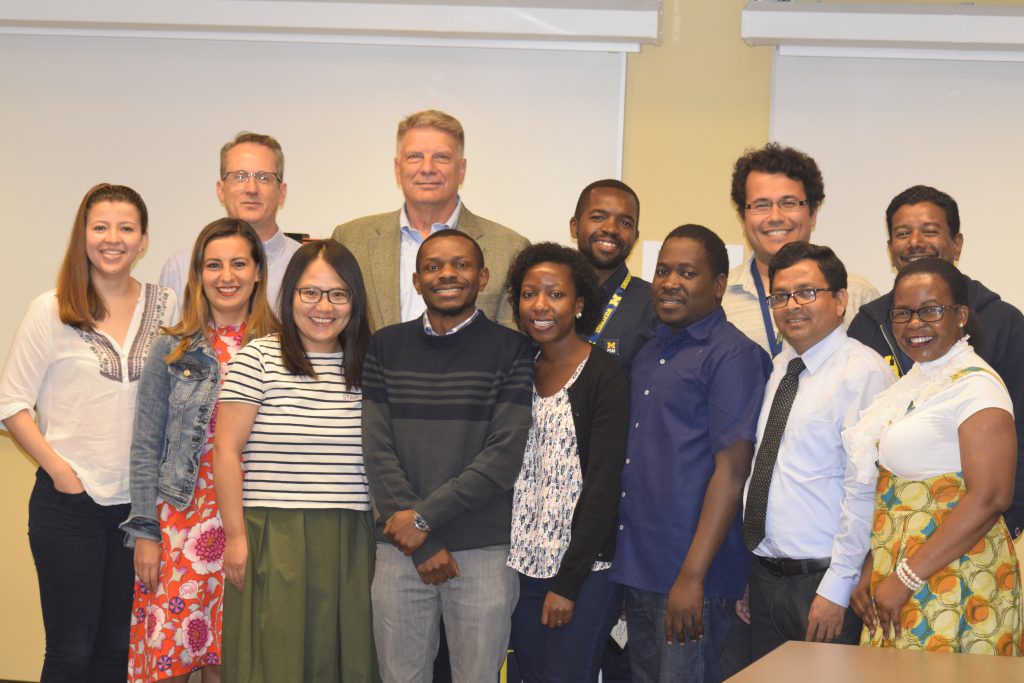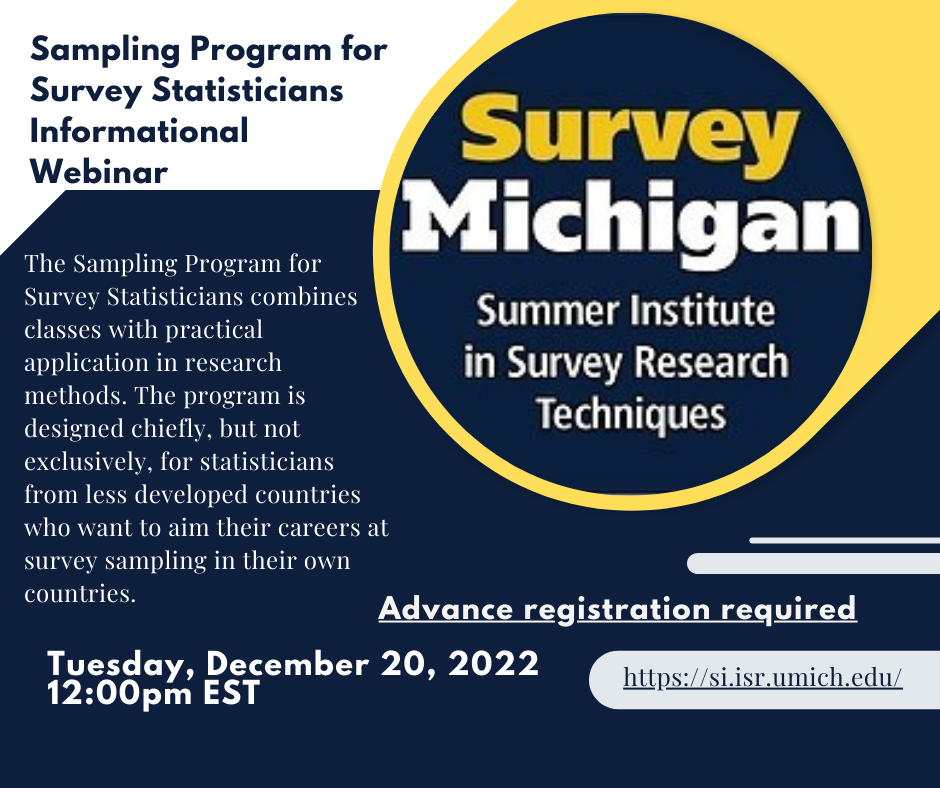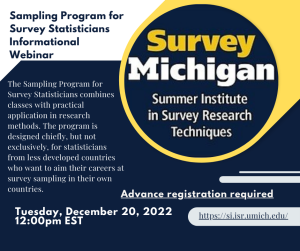The Sampling Program for Survey Statisticians, founded by Leslie Kish, will be offered as part of the 2024 Summer Institute from June 3-July 26, 2024. The program combines university classes with practical application in research methods. It is especially useful for statisticians studying at other universities, which have few courses during the summer. The program is designed chiefly, but not exclusively, for statisticians from less developed countries who want to aim their careers at survey sampling in their own countries. We have graduates in over 100 countries.
Courses
The Sampling Program for Survey Statisticians is a eight-week program consisting of three courses: a course in methods , a course on the analysis of complex sample survey data, and a hands-on daily workshop. All classes are scheduled in Eastern Standard Time Zone.
- Methods of Survey Sampling
- Analysis of Complex Sample Survey Data
- Workshop in Survey Sampling Techniques
Students participating in the Sampling Program for Survey Statisticians (SPSS) enroll in only these three courses and are considered Fellows in the Program. The methods and the analysis courses may be taken without being a Fellow. The workshop is reserved only for Sampling Program Fellows and cannot be taken alone.

To apply for admission to the Sampling Program for Survey Statisticians (SPSS), complete and submit the application to the Summer Institute in Survey Research Techniques no later than November 15, 2023 for international participants requiring a J-1 Visa. Domestic application deadline is April 19, 2024. The following are details that you will need to submit for a complete application:
- Sampling Program application
- Statement of Purpose
- Current curriculum vitae (CV) or resume
- Proof of English Language proficiency
- Letters of recommendation. Submit at least one, preferably 2 letters of recommendation from your current employment supervisor or faculty advisor.
- Proof of funding. If you will joining us from outside of the United States, you will need a DS-2019 and J-1 Visa. The Sampling Program will assist you with the process. As part of this process you are required to provide financial records of the minimum requirements below (through August 31, 2024):
Exchange Visitor (no dependents) $2,800 per month ($33,600 per year)
Exchange Visitor + 1 Dependent $3,800 per month ($45,600 per year)
Exchange Visitor + 2 Dependents $4,350 per month ($52,200 per year)
Exchange Visitor + 3 Dependents $4,800 per month ($57,600 per year)
We will need all of the items listed above before your application will be fully considered. It is vital that we receive all necessary materials from you as soon as possible to ensure there will be no delays in the application review and J-1 Visa processing. The future on the 2024 Sampling Program will depend on all applicants doing their part in submitting all required materials in a timely manner.
Meet the past cohort:
2021 Sampling Program for Survey Statisticians
2020 Sampling Program for Survey Statisticians
Overview
Widespread demand exists for statisticians trained in both theory and practice of survey sampling. The scarcity of these skills is most critical in less developed countries, where social and economic surveys are needed to plan, assess and interpret the rapid changes of developing countries. Sample surveys are used to estimate natural resources; to estimate production and demand for goods; to assess human resources and problems; to obtain data on demography, health, and fertility; to measure community attitudes and development; and to evaluate the success of community projects and other social programs. Skilled statisticians are needed to perform key functions in applying mathematical statistics to practical social problems. Although experts from outside can and should help, the need must be met chiefly, and eventually, through proper training of local talent
What is Survey Sampling?
Survey sampling is a technical field that combines statistical theory with applications to complex practical problems. The ideal candidate holds an MA or BA degree, with high standing and special recommendations. The major field of study should have been in mathematics or statistics, perhaps combined with an applied field, such as physics, engineering, agronomy, demography, economics, or sociology. He or she works in a central statistical office, research institute, or university; has read in statistics and survey sampling; has done some practical work in statistics or survey sampling; and now wants to get advanced training that combines theory and practice. He or she is a motivated individual and is in a position to apply our sampling training to practical and important problems in his own country. The program is not designed for merely theoretical learning and academic advancement.


